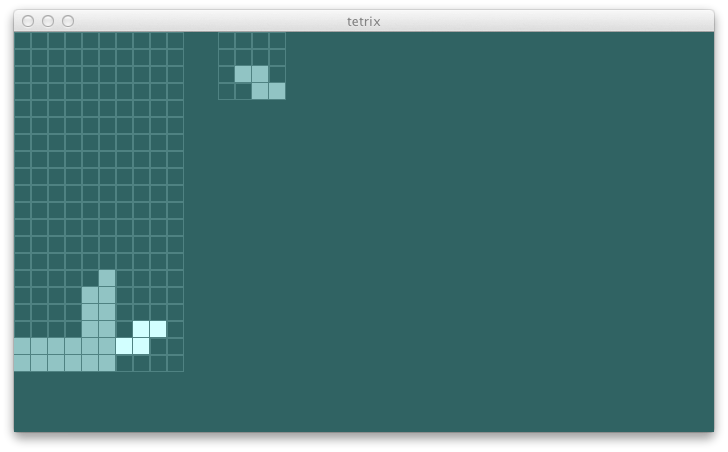tetrix in Scala — drop
drop
To speed up the game, the user should be able to drop the current piece until it hits something.
s2"""
Dropping the current piece should
tick the piece until it hits something. $drop1
"""
...
def drop1 =
drop(s1).blocks map {_.pos} must contain(exactly(
(0, 0), (4, 0), (5, 0), (6, 0), (5, 1),
(4, 18), (5, 18), (6, 18), (5, 19)
)).inOrder
One way to implement this is to call transit {_.moveBy(0.0, -1.0)} 20 times, and then call tick at the end. The extra transit calls after hitting something would just be ignored.
val drop: GameState => GameState = (s0: GameState) =>
Function.chain((Nil padTo (s0.gridSize._2, transit {_.moveBy(0.0, -1.0)})) ++
List(tick))(s0)
This passes the test:
[info] Dropping the current piece should
[info] + tick the piece until it hits something.
summary
The current piece now moves, rotates, and drops. The full rows are cleared, and the next pieces are visible. I say the goal of finishing up the basic feature is met.

As always, the code’s up on github:
$ git fetch origin
$ git co day3v2 -b try/day3
$ sbt swing/run
Next Page
❧
day 4